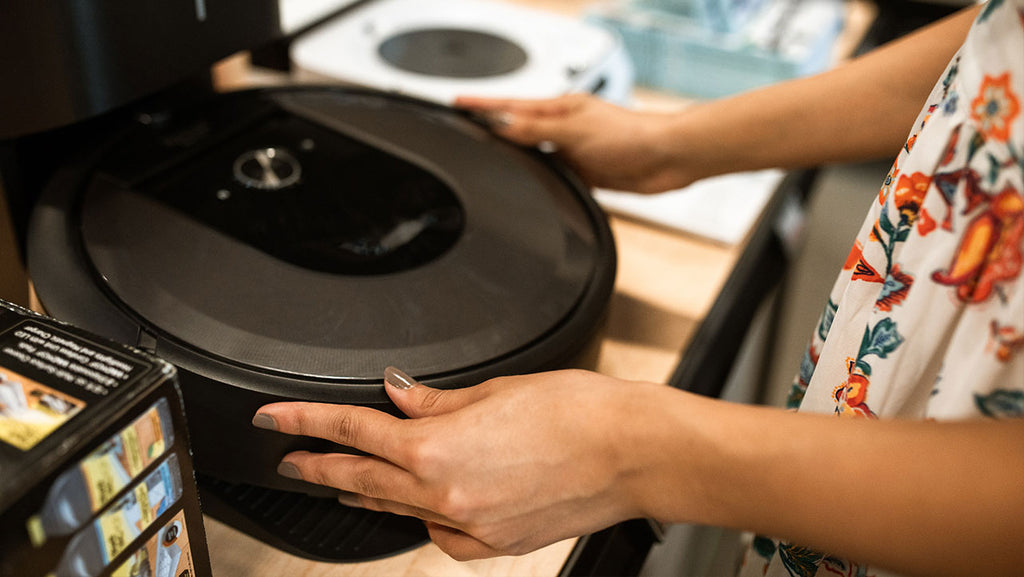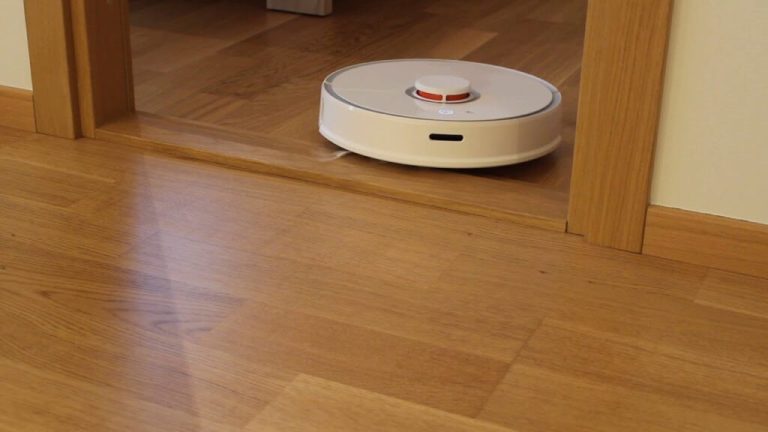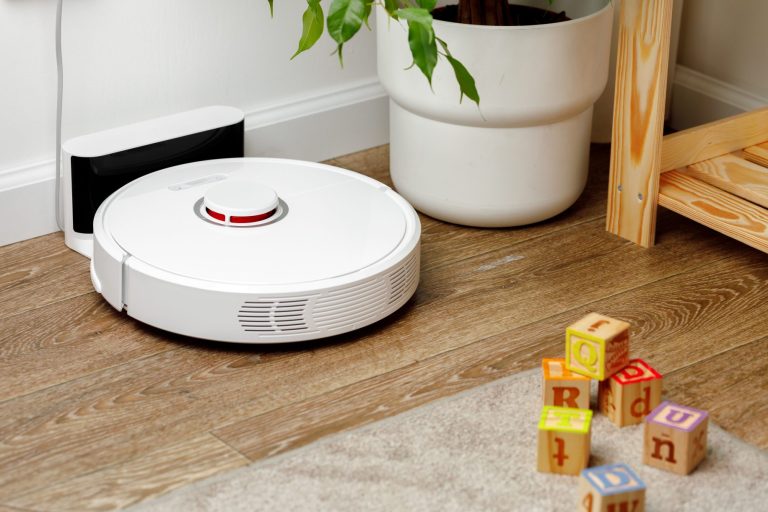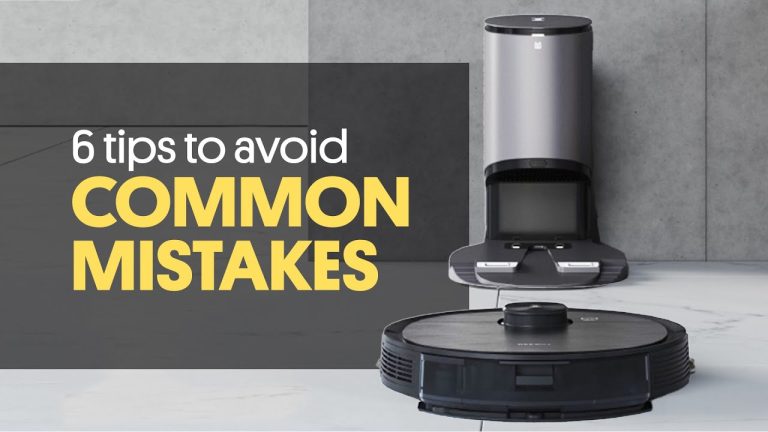How Long Do Robot Vacuums Last?

Most robot vacuums have a lifespan of about two to three years. However, this number can vary depending on the brand and model of your vacuum. Additionally, how often you use your vacuum and how well you maintain it will also affect its longevity.
In general, though, you can expect most robot vacuums to last for a few years before needing to be replaced.
How long do robot vacuum’s last? 15 YEARS!
If you’ve ever wondered how long those little robot vacuums will last, wonder no more! We’ll give you the scoop on how long these nifty machines typically last, as well as some tips on how to make yours last even longer.
On average, a robot vacuum will last for about two years with regular use.
However, there are some things you can do to extend the life of your machine. First, be sure to empty the dustbin after each use. This will help keep the sensors and other components clean and free of debris.
Second, if your vacuum has a filter, be sure to replace or clean it regularly according to the manufacturer’s instructions. Doing these simple things will help ensure that your vacuum lasts as long as possible.
How Long Do Robot Vacuums Last Reddit
When it comes to robotic vacuums, one of the most frequently asked questions is “How long do they last?” In order to answer this question, we must first understand what a robotic vacuum is and what it does.
A robotic vacuum is a self-contained unit that uses sensors to navigate your floors and clean them by vacuuming up dirt, dust, and debris.
These units are becoming increasingly popular as they offer homeowners a hands-free way to keep their floors clean. But how long do these nifty little machines actually last?
Unfortunately, there is no simple answer to this question as it depends on a number of factors, including the brand of vacuum, how often it is used, and whether or not it is properly maintained.
However, we can give you some general guidelines based on our experience with these types of vacuums.
On average, most robotic vacuums will last for several years with proper care and maintenance. However, if you use your vacuum heavily or if it isn’t well-maintained, it may only last for one or two years.
Additionally, cheaper brands tend to have shorter lifespans than more expensive brands.
To extend the life of your robot vacuum and keep it running smoothly, be sure to empty the dustbin after each use (or at least once per week), wipe down the sensors and brushes regularly, and keep an eye out for any loose parts that may need to be tightened or replaced. By following these simple tips, you can help ensure that your robotic vacuum will provide years of trouble-free service.
How Long Do Eufy Robot Vacuums Last
Eufy, a sub-brand of Anker, produces some of the most popular and well-reviewed robot vacuums on the market. Eufy’s lineup includes the RoboVac 11S, RoboVac 30C, and RoboVac 35C. All three models have received high marks for their cleaning power, design, and overall performance.
But how long do these robot vacuums actually last?
The answer may surprise you. According to Eufy’s website, each of their robot vacuums is designed for “up to 100 minutes” of continuous cleaning.
That means that if you have a large home or multiple floors to clean, you can expect your Eufy vacuum to run for at least an hour before needing to be recharged. And if you have a smaller home or apartment, your Eufy vacuum should be able to clean the entire space on a single charge.
Of course, actual battery life will vary depending on factors like carpet type, floor type, and dirtiness.
But based on our own testing and the experiences of other users, we believe that Eufy’s estimate of 100 minutes per charge is accurate. In other words, you can expect your Eufy vacuum to last for years with normal use.
So there you have it: If you’re looking for a robot vacuum that will give you years of faithful service, look no further than Eufy!
How Long Do Robot Vacuums Take to Charge
Robot vacuums are becoming increasingly popular as people look for ways to save time on household chores. One of the questions people often have about robot vacuums is how long they take to charge.
The answer to this question depends on the specific model of robot vacuum you have.
Most models will take between two and four hours to fully charge, though some may take longer or shorter. It’s a good idea to check your owner’s manual to be sure.
If you’re planning to use your robot vacuum regularly, it’s a good idea to keep it plugged in so that it’s always ready to go.
This way, you won’t have to wait for it to charge up before using it each time.
How Long Do Shark Robot Vacuums Last
When it comes to robotic vacuums, Shark has always been a top contender. Their products are known for being durable and efficient, and their newest line of robot vacuums is no different. The question on everyone’s mind though is “how long do these things actually last?”
In general, Shark robot vacuums are built to last. With proper care and maintenance, most models will continue to run smoothly for years to come. Of course, like with any piece of technology, there are always going to be some exceptions.
But overall, you can expect your Shark robot vacuum to give you many years of faithful service.
So what exactly makes a Shark vacuum so durable? For starters, they use high-quality materials in all of their products.
Their robots are also designed with durability in mind, so they can withstand regular wear and tear without issue. Additionally, Shark offers excellent customer support should you ever have any issues with your vacuum.
If you’re looking for a robotic vacuum that will give you years of trouble-free use, then a Shark model is definitely worth considering.
They may not be the cheapest option on the market but in the long run, they’ll definitely save you money by lasting much longer than other brands.
How Long Do Pool Robot Vacuums Last
If you have a pool, you know that keeping it clean can be a chore. But what if there was a way to make cleaning your pool easier and less time-consuming? Pool robot vacuums are designed to do just that – they automatically clean your pool while you relax or take care of other tasks.
But how long do these handy devices last?
On average, pool robot vacuums will last for about two to three years with proper maintenance. Of course, this lifespan can vary depending on the make and model of the vacuum as well as how often it is used.
With regular use, pool robot vacuums can help keep your pool clean and free of debris, making it easier for you to enjoy your swimming space all season long.

Credit: robotklinsmann.com
How Long Do Robot Vacuums Battery Last?
Most robot vacuums have a battery life of around 2 hours. However, there are some that can last up to 4 hours. The length of time your robot vacuum’s battery will last depends on the model you have and how you use it.
How Often Should I Replace My Roomba?
Assuming you are referring to the iRobot Roomba Vacuum Cleaner: The iRobot Roomba should be replaced every 2-3 years, depending on how often it is used.
How Long Should a Shark Robot Vacuum Last?
If you’re looking for a robot vacuum that can tackle pet hair, dirt, and debris on all floor types, then you might be wondering how long a shark robot vacuum should last. Here’s what you need to know about the longevity of these vacuums.
Shark makes several different models of robot vacuums, including the Shark Ion Robot 750, Shark Ion Robot 760, and Shark Ion Robot 780.
These vacuums are designed for different floor types and have different features, but they all have one thing in common: they’re engineered to last.
The 750 model is the most basic model and it’s designed for use on carpets and hard floors. The 760 model has more suction power and is also designed for use on all floor types.
The 780 model is the top-of-the-line model with advanced features like self-cleaning brushes and LED headlights.
All of these models are backed by a 2-year limited warranty, so you can be confident that your purchase will last. In addition, the batteries on these vacuums are designed to last up to 500 charge cycles before needing to be replaced.
So how long should a shark robot vacuum last? With proper care and maintenance, your shark robot vacuum should provide years of trouble-free operation.
Are Robot Vacuums Worth It?
When it comes to deciding whether or not to purchase a robot vacuum, there are a few key things you’ll want to keep in mind. The first is obviously price – at an average of $200-$300, they’re not exactly cheap. But if you think about the amount of time and effort a regular vacuum cleaner takes, plus the cost of replacement bags or filters, a robot vacuum can actually save you money in the long run.
And let’s be honest – who doesn’t love the idea of having a little robot helper around the house? In terms of features, most robot vacuums come with basic suction and brushes for picking up dirt and debris. Some models also include extras like mopping pads or UV sterilization for an even deeper clean.
One thing to keep in mind is that since these vacuums are small and compact, they may not have enough power to thoroughly clean large areas or carpets with deep pile. So if you have a lot of carpeting in your home, you might want to stick with a traditional upright vacuum. Overall, robot vacuums can be a great addition to any home – just make sure to do your research and find one that fits your specific needs.
Conclusion
Robot vacuums have become increasingly popular in recent years as people look for ways to make their lives easier. But how long do these devices actually last?
According to most manufacturers, robot vacuums should last for around two years with regular use.
However, there are a number of factors that can impact the lifespan of a robot vacuum, including frequency of use, type of flooring, and whether or not you have pets.
If you want your robot vacuum to last as long as possible, it’s important to take good care of it. This means emptying the dustbin regularly, cleaning the brushes, and making sure that it doesn’t get stuck under furniture or in tight spaces.



